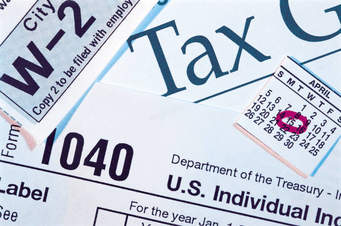 In a very late night vote last Friday, the Senate passed its version of the $1.5 trillion tax bill. What did the vote demonstrate about the state of U.S. politics, economy and, indeed, the culture of the nation?
In a very late night vote last Friday, the Senate passed its version of the $1.5 trillion tax bill. What did the vote demonstrate about the state of U.S. politics, economy and, indeed, the culture of the nation?
The deeply worrisome split in the country was clearly reflected in the vote. Not a single Democrat voted for the bill; every Republican, save one (Bob Corker (R-Tenn.) voted in favor of it. There was more than just partisan politics at play.
The tax debate shows that the two parties have sharply contrasting views on what is best for the country.
The GOP governs on the fundamental principle that “the government that governs least, governs best.” They note that restrictions on businesses and high taxes (the United States has the highest corporate taxes of any developed nation) devastated middle class jobs, and encouraged large businesses to leave the country, taking their revenue stream with them.
The GOP tax plan recalls the results of cutting taxes by both Democrat President John Kennedy and Republican Ronald Reagan. Both instances resulted in significantly greater growth in both federal revenue and jobs, and an improved business climate.
The Tax Foundation estimates that the plan “would result in the creation of roughly 925,000 new full-time equivalent jobs, while increasing the after-tax incomes by 4.4 percent in the long run, meaning families would see an after-tax income boost of 4.4 percent by the end of the decade.”
The Heritage Foundation concurs: “The Senate passed Tax Cuts and Jobs Act …could boost the economy by almost 3 percent, leading to more jobs and higher wages for working Americans…It cuts taxes for individuals and businesses, largely repeals the state and local tax deduction, and allows businesses to invest more in the American economy…Pro-growth tax reform can unleash the U.S. economy, strengthen workers’ wages, and increase job opportunities.”
Republicans argue that creating greater numbers of jobs, and better opportunities for middle-class owned businesses (who, as “pass through” corporations receive better tax cuts) the middle-class benefits from the measure. The standard deduction and personal exemptions are nearly doubled for individual filers, a very significant saving, and the child care credit is increased. Many individuals tax rates are slightly reduced, but some deductions, most notably for state and local income taxes, would be lost.
Democrats chafe at the notion that corporations receive a larger tax break. They point out, as noted by CNN Money that tax rate breaks for individuals don’t even come close to equaling the cuts to corporate taxes. They emphasize that by eliminating the deduction for state and local income taxes, some may pay more.
Democrats are also unconvinced that cutting taxes will spark the economy, (despite the experiences of Presidents Kennedy and Reagan) and that Washington will not receive the revenue needed to fund social spending program, which, except for Social Security and Medicare for seniors, expanded during the Obama Administration.
In a statement, Senator Bernie Sanders noted: “”I am disappointed but not surprised that the Republicans voted unanimously to proceed with a disastrous tax bill. This bill will provide 62 percent of the benefits to the top 1 percent.” Senator Elizabeth Warren tweeted: “Tonight the Senate GOP gave a giant tax break to the rich & left everyone else holding the bag. This is about more than economics – it’s about our values.”
Encapsulated in the debate over the tax bill are two very different visions for the United States, with Republicans adhering to a more traditional view of an economy centered around jobs and enterprise, and Democrats preferring a path trending towards a more government-directed environment. In the past, significantly different views were eventually compromised. But in the all-or-nothing votes, with almost all Republicans voting one way and every Democrat senator voting the other, the nation is more sharply divided than at any time since the Civil War.
Frank Vernuccio serves as editor-in-chief of the New York Analysis of Policy and Government. Twitter: @FrankVVernuccio













Follow Us